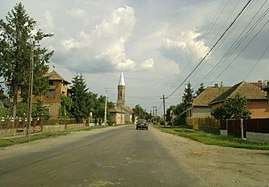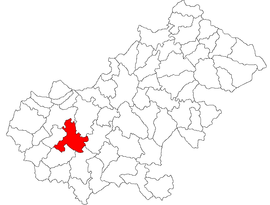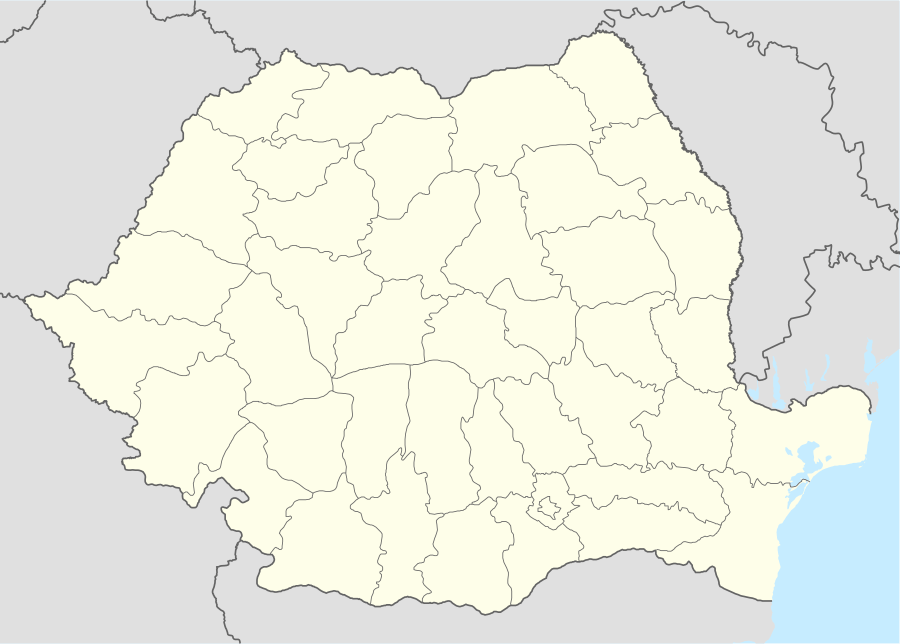Căuaș
Căuaș (Hungarian: Érkávás, Hungarian pronunciation: [ˈeːrkaːvaːʃ]) is a commune of 2,350 inhabitants situated in Satu Mare County, Crișana, Romania. It is composed of six villages:
- Ady Endre / Érmindszent or Adyfalva
- Căuaș
- Ghenci / Gencs
- Ghilești / Illéd
- Hotoan / Érhatvan
- Rădulești / Újtanya
Căuaș Érkávás | |
|---|---|
 Ghenci village | |
 Location in Satu Mare County | |
 Căuaș Location in Romania | |
| Coordinates: 47°34′N 22°33′E | |
| Country | |
| County | Satu Mare |
| Population (2011)[1] | 2,388 |
| Time zone | EET/EEST (UTC+2/+3) |
| Vehicle reg. | SM |
History
In July 2011, a Thracian settlement dating to 1050-1750 BC has been discovered in Căuaş by a joint research group formed by Romanian and German archaeologists.[3]
Ady Endre Memorial House.
Three kilometres from Căuaș there is a small village with the name of the poet Ady Endre, one of the most important Hungarian poets. In 1957, Ady Endre Memorial House was founded and in the same year the name of the small village Micențiu was changed to Ady Endre. Among the important documents, books and manuscripts, there is also the parish transcript of the Protestant Church with the registered birth date of the poet in it. In the opposite part of the courtyard there is the Ady Endre family peasant house, where the original furniture items are displayed.
Notes
- "Populaţia stabilă pe judeţe, municipii, oraşe şi localităti componenete la RPL_2011" (in Romanian). National Institute of Statistics. Retrieved 4 February 2014.
- http://www.satumare.insse.ro/phpfiles/rezultateprovizorii.pdf
- http://www.adevarul.ro/locale/satu_mare/Descoperire_istorica_la_Cauas_0_527347500.html Thracian settlement discovered in Căuaș
External links
| Wikimedia Commons has media related to Dacia and Dacians. |
- Thracian settlement discovered in Căuaș (in Romanian)
